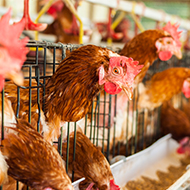Edinburgh Zoo makes Hogmanay fireworks appeal
“Firework control zones are a positive step, but only part of the solution, as the noise from explosions can carry over long distances” – Ben Supple.
The Royal Zoological Society of Scotland (RZSS) has urged residents near Edinburgh Zoo not to let off fireworks during Hogmanay, after a three-month-old red panda died at the zoo last month.
Roxie choked on her own vomit on 5 November. Veterinary experts at the zoo believe her death may have been caused by the stress of fireworks being set off in the city for Bonfire Night.
Her mother, Ginger, also died unexpectedly five days before, and her death may also have been linked to fireworks.
Because there is not enough time for the City of Edinburgh Council to consult on a fireworks exclusion zone for the area around the zoo, RZSS is appealing to residents not to set any off during Hogmanay celebrations.
The zoo is also planning to protect animals from any fireworks by keeping them indoors and, where possible, providing them with deep bedding to reduce noise impact. Long-term, RZSS is calling for tighter restrictions on the sale of fireworks.
Ben Supple, RZSS’s deputy chief executive, said: “We have been inundated by messages from people who were shocked by what happened to Roxie and believe the UK government should ban fireworks from being sold to the public due to the severe impact they can have on animals.
“Firework control zones are a positive step, but only part of the solution, as the noise from explosions can carry over long distances. So-called silent fireworks are also an improvement, though they can emit low frequency sounds which can cause distress to animals.
“We believe displays should be restricted to organised events which use the latest light and drone technology and are completely silent. This would help avoid devastating consequences for animals while ensuring that people can still enjoy traditional celebrations like Hogmanay.”
Image © Shutterstock



 An Avian Influenza Prevention Zone (AIPZ) has been introduced across Wales.
An Avian Influenza Prevention Zone (AIPZ) has been introduced across Wales.